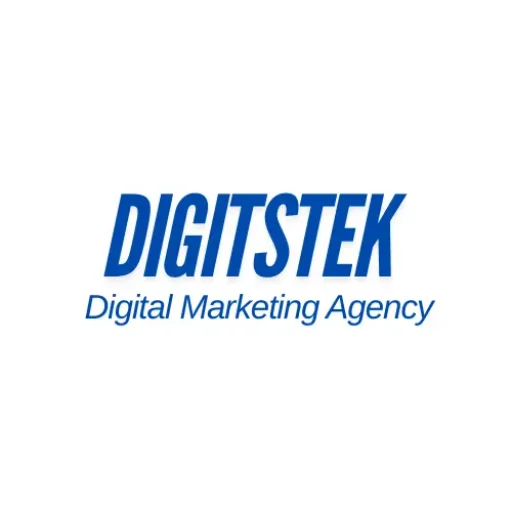
The digital marketing landscape is in a constant state of evolution, but the shifts we’re witnessing today are more than just incremental updates. We are entering an era of profound transformation, driven by rapid advancements in artificial intelligence and fundamental changes in consumer behavior. For marketers, success in 2025 will require more than just adopting new tools; it demands a fresh perspective on strategy, content creation, and audience engagement.
This post delves into the most impactful digital marketing trends you need to have on your radar for the year ahead. We will explore the deeper integration of AI into our daily workflows, the unstoppable rise of social search, the growing power of authentic employee voices, and the new discipline of Generative Engine Optimization (GEO). Understanding these shifts is the first step toward building a resilient and effective strategy that connects with modern audiences.
The Deepening Role of AI in Marketing
Artificial intelligence has officially moved beyond the hype cycle and is now a foundational layer of the modern marketing technology stack. In 2025, its influence is less about simple automation and more about unlocking unprecedented strategic capabilities. AI is enabling smarter, more personalized, and highly predictive marketing efforts that were once the stuff of science fiction.
The Rise of Proactive AI Agents
One of the most significant developments is the emergence of AI agents. These are not just reactive chatbots; they are autonomous programs designed to execute complex, multi-step tasks across different platforms. Imagine an AI agent that pulls daily performance data from Google Analytics and Meta, analyzes the results against your campaign goals, generates a concise summary report, and emails it to the team all before you’ve had your first coffee.
These agents are shifting AI from a content generator to a proactive strategic partner. They can manage campaign budgets, A/B test ad creatives, and identify optimization opportunities in real-time, freeing up marketers to focus on high-level strategy and creative thinking.
AI’s Transformation of E-commerce
E-commerce is another area undergoing a complete AI-driven revolution. Brands are now leveraging artificial intelligence to create highly sophisticated and intuitive customer journeys.
Effective uses of AI in e-commerce include:
- Hyper-Personalization: AI algorithms analyze purchase history and real-time user behavior to deliver product recommendations that are uniquely tailored to each individual.
- Dynamic Pricing: You can adjust prices in real time based on demand, competitor activity, and customer data to maximize profitability and conversion rates.
- Visual and Voice Commerce: Integration with tools like Google Lens and voice assistants like Alexa allows customers to shop more naturally, using images or voice commands to find products.
This level of intelligence facilitates a customer experience that is not only seamless but also predictive, anticipating user needs before they are even articulated.
The Unstoppable Rise of Social Search
For years, Google has been the undisputed king of search. While it remains a dominant force, a significant behavioral shift is underway. Younger audiences, particularly Gen Z, are increasingly turning to social media platforms like TikTok, Instagram, and YouTube as their primary search engines for discovery, reviews, and product research.
This trend means that having a presence on social media is no longer enough. Brands now require a dedicated social SEO strategy. This involves optimizing content not just for engagement metrics like likes and shares, but for discoverability within these platforms. Users on social media are asking conversational questions and looking for visual, authentic answers from real people, not just branded accounts.
To capitalize on this trend, you must start thinking like a social searcher. Integrate relevant keywords naturally into your profiles, video descriptions, and post captions. Focus on creating high-quality, helpful content—such as tutorials, how-to guides, and authentic reviews—that people will want to reference and share. A single video demonstrating a product’s use can become a powerful and long-lasting discovery asset.
The Shift Towards Employee-Generated Content (EGC)
As consumers grow more skeptical of polished corporate messaging, they are placing a higher value on authenticity. This has fueled the rise of a powerful and trustworthy content format: Employee-Generated Content (EGC). EGC refers to any content—such as social media posts, blog articles, or videos—created organically by a company’s own employees. It provides a genuine, behind-the-scenes glimpse into a brand’s culture, values, and expertise.
Platforms like LinkedIn have become hotbeds for this trend. An engineer’s detailed post about solving a complex technical problem or a marketer’s candid take on a recent campaign can generate far more trust and engagement than an official company announcement. Why? It’s relatable and comes from a genuine, human perspective. Studies show that consumers are far more likely to be loyal to brands that practice transparency, and EGC is a direct path to achieving it.
To foster a successful EGC program, empower your team to share their stories. Provide them with clear guidelines and support, but avoid heavily scripted content that feels forced or inauthentic. The goal is to showcase the real people behind your brand, building trust and a strong community from the inside out.
The Dawn of Generative Engine Optimization (GEO)
Just as marketers mastered Search Engine Optimization (SEO), a new discipline is emerging: Generative Engine Optimization (GEO). GEO is the practice of optimizing your content to appear prominently in the results of AI-driven search engines, such as Google’s AI Overviews, Perplexity, and ChatGPT. As these tools handle an increasing number of user queries, your visibility within their generated answers becomes mission-critical. Gartner predicts that traditional search engine traffic will drop by 25% by 2026, largely due to this shift toward AI chatbots.
GEO requires a different approach than traditional SEO. AI engines prioritize content that directly, concisely, and authoritatively answers conversational questions. They look for demonstrated expertise, proprietary data, and well-structured information that can be easily synthesized into a coherent summary for the user.
To succeed with GEO, focus on:
- Creating High-Quality, Authoritative Content: Double down on content that clearly demonstrates E-E-A-T (Experience, Expertise, Authoritativeness, and Trustworthiness).
- Incorporating Original Data: Use unique research, internal surveys, and proprietary insights that AI models can reference as a primary source.
- Answering Questions Directly: Structure your content with clear headings and concise paragraphs that provide direct answers to the questions your audience is asking.
The winning formula is a blend of AI-assisted research to identify questions and human-generated insight to provide the most valuable answers. This creates content that both users and AI models find indispensable.
Conclusion: Adapting for a New Era of Marketing
The trends of 2025 are not isolated phenomena. They are interconnected threads weaving a new marketing reality where AI-powered strategy, authentic communication, and multi-channel discovery reign supreme. AI is becoming a strategic partner, social platforms are evolving into powerful search engines, and your employees are emerging as your most trusted brand advocates.
Adapting to this new landscape requires curiosity and a proactive willingness to experiment. Start by identifying which of these trends aligns most closely with your business objectives. Begin testing AI agents for specific tasks, develop a social SEO strategy for a key platform, or launch a pilot EGC program with a small, enthusiastic group of employees. The brands that embrace these transformative shifts today will be the ones that lead the conversation tomorrow.




